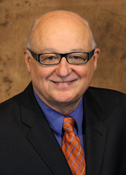 Dr. Eli Coleman earned his Ph.D. at the University of Minnesota in 1978 and became a professor in the Program in Human Sexuality that same year. He became director of the Program in 1991, and continues to serve in this position.
Dr. Eli Coleman earned his Ph.D. at the University of Minnesota in 1978 and became a professor in the Program in Human Sexuality that same year. He became director of the Program in 1991, and continues to serve in this position.
Interview Abstract
Dr. Eli Coleman begins his interview by describing his early life, his education, and his move to the University of Minnesota and the Program in Human Sexuality (PHS). He reflects on his first years in the program, its transition into Family Medicine, Dr. Ed Ciracy’s impact on the PHS, and the Sexuality Attitude Reassessment seminar. He also discusses the following: the role of churches and seminaries in the PHS; the PHS curriculum and teaching; Don Hoag and Sharon Satterfield as directors of PHS; PHS contributions to HIV-AIDS behavioral research; funding issues; politics surrounding the PHS; John Kelly’s work as director; and Dr. William Jacott’s leadership of the Department of Family Medicine. Dr. Coleman the reviews his own time as head of the PHS, including the economic problems the Program faced. He describes the development of and changes to the sex offender treatment program, disability work in the PHS, and the Program’s work on transgender issues and his work on the Gender Committee. He concludes with the relationship between the World Professional Association for Transgender Health and the PHS.
Biographical Sketch
Eli Coleman was born in Buffalo, New York but grew up in Montreal, Canada and then Chicago, Illinois. He earned a bachelor’s degree in psychology and history at Marquette University in Milwaukee, Wisconsin and his master’s in psychology at the University of Wisconsin, Oshkosh. He pursued further graduate work at Miami University in Oxford, Ohio, and completed his Ph.D. in counseling psychology at the University of Minnesota in 1978. He became an instructor and then professor in the University’s Program in Human Sexuality in 1978. He is the founding editor of International Journal of Transgenderism and International Journal of Sexual Health, and has served in leadership roles for several of the professional societies in his field. Dr. Coleman became director of the Program in Human Sexuality in 1991 and continues to serve in this position.
Interview Transcript